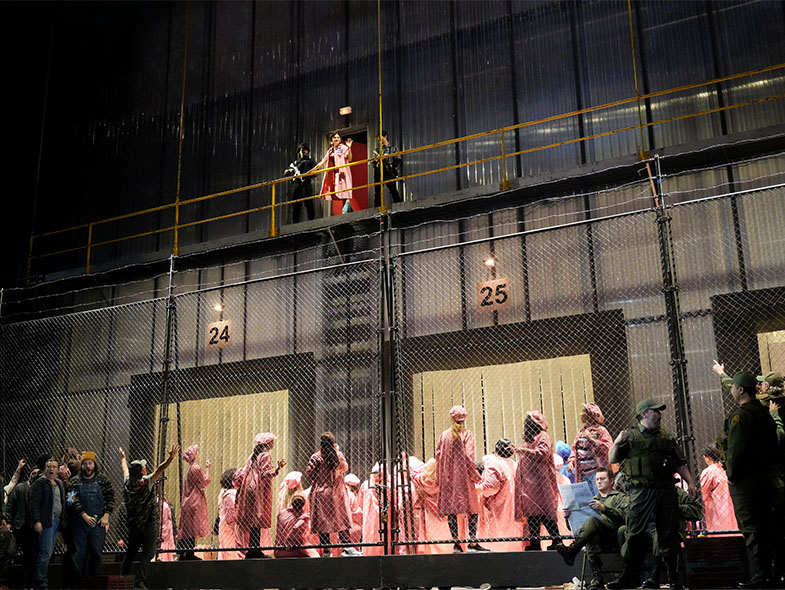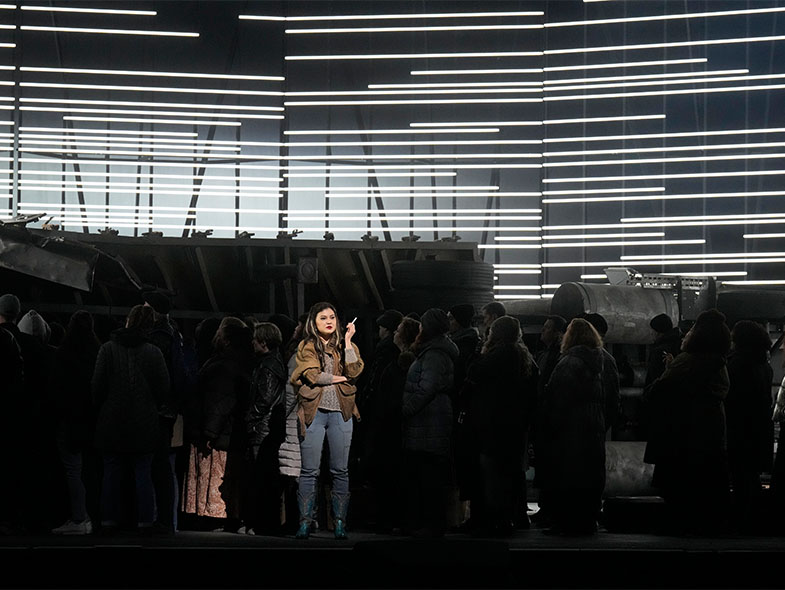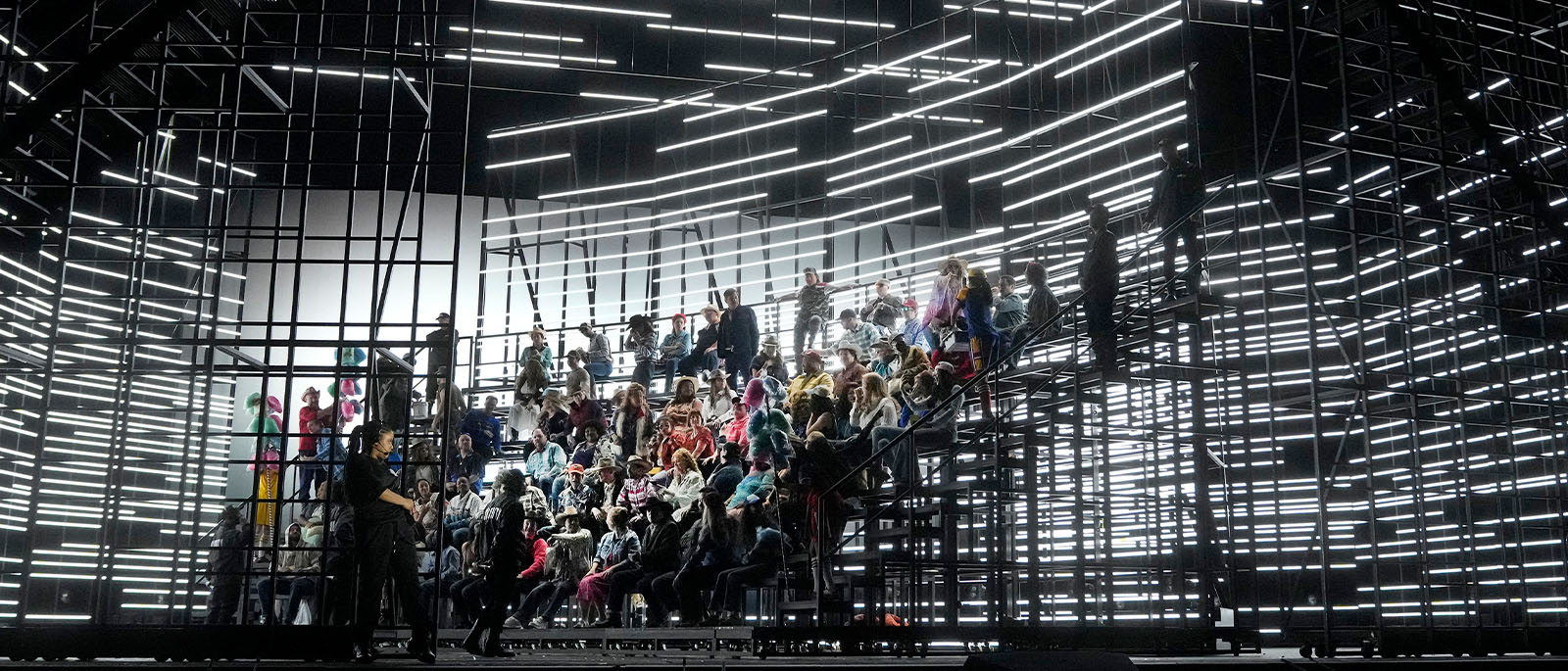
Georges Bizet
Carmen
Single tickets will go on sale to the general public in June 2025.
Patrons and Subscribers are eligible to purchase single tickets now. Please login to continue.
Overview
Bizet’s fiery masterpiece of seduction, obsession, and tragedy stars two of today’s leading mezzo-sopranos as the title heroine, whose irresistible allure drives the soldier Don José to destruction. Isabel Leonard brings her smoldering take to the Met for the first time, opposite tenors Michael Fabiano and Matthew Polenzani, and Aigul Akhmetshina, praised by The New Yorker for the “fresh, ferocious energy” of her Carmen in the 2023–24 season, reprises her star-making portrayal, alongside tenor Michael Fabiano.
The Met gratefully acknowledges the support of Adrienne Arsht, the Berry Charitable Foundation, and Elizabeth M. and Jean-Marie R. Eveillard
Languages
Languages sung in Carmen
Sung In
French
Titles
Title languages displayed for Carmen
Met Titles In
- English
- German
- Spanish
Timeline
Timeline for the show, Carmen
Estimated Run Time
3 hrs 30 mins
-
House Opens
-
Acts I and II
100 mins
-
Intermission
45 mins
-
Acts III and IV
65 mins
-
Opera Ends
Cast
Select a date from the dropdown to filter cast by date of performance

World premiere: Opéra Comique, Paris, 1875. Bizet’s masterpiece of the Gypsy seductress who lives by her own rules has had an impact far beyond the opera house. The opera’s melodic sweep is as irresistible as the title character herself, a force of nature who has become a defining female cultural figure. Carmen was a scandal at its premiere but soon after became a triumphal success and has remained one of the most frequently staged operas in the world.
Creators
Georges Bizet (1838–75) was known as a brilliant student and prodigy, but his works only found lasting success after his untimely death—most notably Carmen, which premiered three months before he died. Librettist Henri Meilhac (1831–97) would subsequently provide the libretto for Massenet’s Manon (1884). His collaborator on Carmen was Ludovic Halévy (1834–1908), the nephew of composer Jacques Fromental Halévy (creator of the opera La Juive and Bizet’s father-in-law). The libretto is based on a novella by Prosper Mérimée (1803–70), a French dramatist, historian, and archaeologist.
PRODUCTION
Carrie Cracknell
SET DESIGNER
Michael Levine
Costume Designer
Tom Scutt
LIGHTING DESIGNER
Guy Hoare
Projection Designer
rocafilm/Roland Horvath
CHOREOGRAPHER
Ann Yee

Composer
Georges Bizet
Setting

The opera is set in and around the Andalusian capital of Seville, which librettists Henri Meilhac and Ludovic Halévy maintained in their adaptation of Prosper Mérimée’s novella. By the time Carmen was written, Seville had already served many operatic composers as an exotic setting conducive to erotic intrigues and turmoil (Rossini’s Il Barbiere di Siviglia and Verdi’s La Forza del Destino, among others). The hometown of Don Juan, the city also inspired Mozart’s Don Giovanni, and Beethoven used Seville as the setting for a study of marital fidelity in Fidelio. In the Met’s new production, the action moves to the modern day, set amid a band of human traffickers—shining new light on the opera’s evergreen themes.
Music
The score of Carmen contains so many instantly recognizable tunes that it can be easy to overlook how well constructed it is. The major solos are excellent combinations of arresting melody and dramatic purpose—from the baritone’s famous Toreador Song to the tenor’s wrenching Flower Song to the title character’s alluring Habanera and Seguidilla—and the duets and ensembles are equally beguiling.

Share This Page
Social Share
Copied